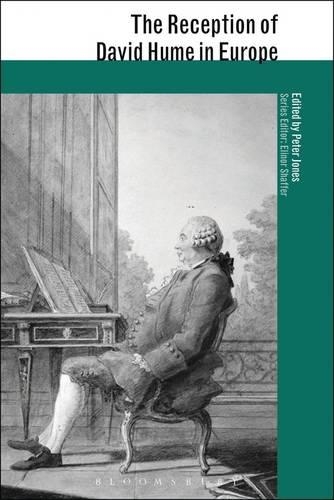
The Reception of David Hume In Europe
(Hardback)
Available Formats
Publishing Details
The Reception of David Hume In Europe
By (Author) Professor Peter Jones
Bloomsbury Publishing PLC
Continuum International Publishing Group Ltd.
4th December 2005
United Kingdom
Classifications
Tertiary Education
Non Fiction
192
Physical Properties
Hardback
434
Width 156mm, Height 234mm
300g
Description
The intellectual scope and cultural impact of British writers cannot be assessed without reference to their European 'fortunes'. These essays, prepared by an international team of scholars, critics and translators, record the ways in which David Hume has been translated, evaluated and emulated in different national and linguistic areas of Europe. This is the first collection of essays to consider how and where Hume's works were initially understood throughout Europe. They reflect on how early European responses to Hume relied on available French translations, and concentrated on his Political Discourses and his History, and how later German translations enabled professional philosophers to discuss his more abstract ideas. Also explored is the idea that continental readers were not able to judge the accuracy of the translations they read, nor did many consider the contexts in which Hume was writing: rather, they were intent on using what they read for their own purposes.
Reviews
"The Reception of David Hume in Europe provides invaluable clues as to how the reception of an author's work impacts its status as a classic. And, perhaps more importantly, it presses us to revise our conception of what is now, particularly in the Anglo-American world, taken to be the quintessential philosophical classic, namely Hume's Treatise of Human Nature...The Reception can be read as telling the history of the different lives of Hume's works - the story of the 'making of' what is now, for us, a philosophical classic...And this story needs to be told." -Alix Cohen, New Essays on David Hume -- Alix Cohen
Reviewed in Tijdschrift Voor Filosofie (Journal of the Institute of Philosophy, of the Catholic University of Leuven),2007 issue.
Author Bio
Peter Jones is Emeritus Professor of Philosophy at the University of Edinburgh.
